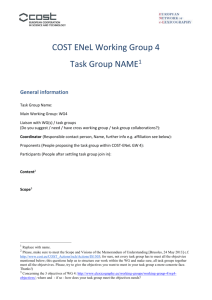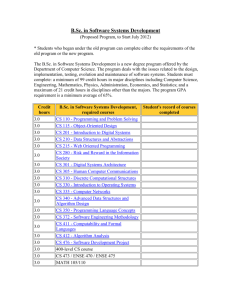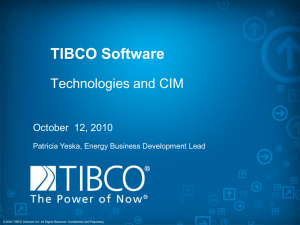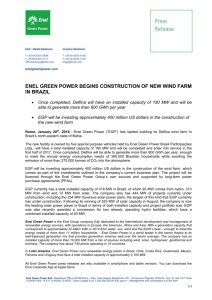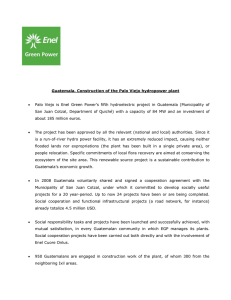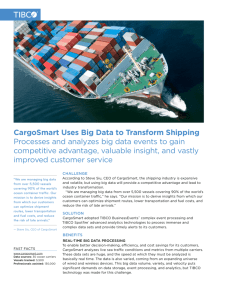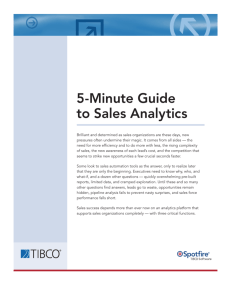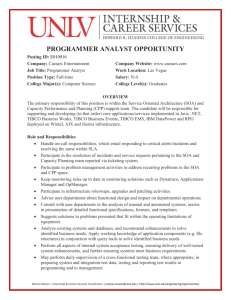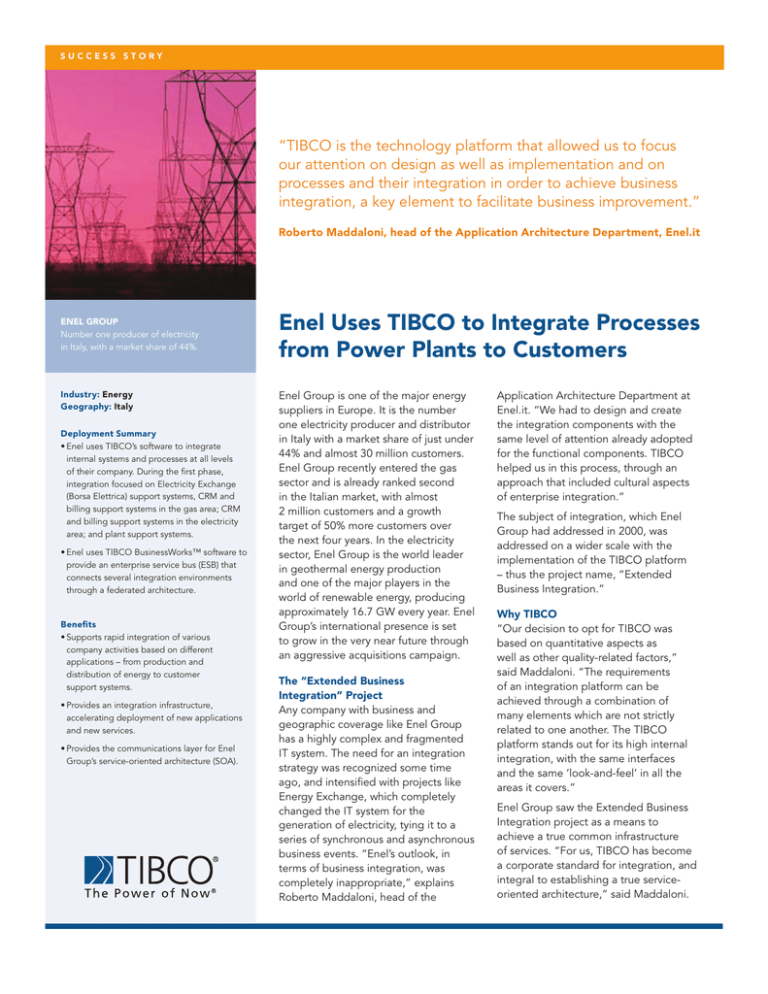
SUCCESS STORY
“TIBCO is the technology platform that allowed us to focus
our attention on design as well as implementation and on
processes and their integration in order to achieve business
integration, a key element to facilitate business improvement.”
Roberto Maddaloni, head of the Application Architecture Department, Enel.it
EnEl GROUP
Number one producer of electricity
in Italy, with a market share of 44%.
Industry: Energy
Geography: Italy
Deployment Summary
•EnelusesTIBCO’ssoftwaretointegrate
internal systems and processes at all levels
of their company. During the first phase,
integration focused on Electricity Exchange
(Borsa Elettrica) support systems, CRM and
billing support systems in the gas area; CRM
and billing support systems in the electricity
area; and plant support systems.
•EnelusesTIBCOBusinessWorks™softwareto
provide an enterprise service bus (ESB) that
connects several integration environments
through a federated architecture.
Benefits
•Supportsrapidintegrationofvarious
company activities based on different
applications – from production and
distribution of energy to customer
support systems.
•Providesanintegrationinfrastructure,
accelerating deployment of new applications
and new services.
•ProvidesthecommunicationslayerforEnel
Group’s service-oriented architecture (SOA).
Enel Uses TIBCO to Integrate Processes
from Power Plants to Customers
Enel Group is one of the major energy
suppliers in Europe. It is the number
one electricity producer and distributor
in Italy with a market share of just under
44% and almost 30 million customers.
Enel Group recently entered the gas
sector and is already ranked second
in the Italian market, with almost
2 million customers and a growth
target of 50% more customers over
the next four years. In the electricity
sector, Enel Group is the world leader
in geothermal energy production
and one of the major players in the
world of renewable energy, producing
approximately 16.7 GW every year. Enel
Group’s international presence is set
to grow in the very near future through
an aggressive acquisitions campaign.
The “Extended Business
Integration” Project
Any company with business and
geographic coverage like Enel Group
has a highly complex and fragmented
IT system. The need for an integration
strategy was recognized some time
ago, and intensified with projects like
Energy Exchange, which completely
changed the IT system for the
generation of electricity, tying it to a
series of synchronous and asynchronous
business events. “Enel’s outlook, in
terms of business integration, was
completely inappropriate,” explains
Roberto Maddaloni, head of the
Application Architecture Department at
Enel.it. “We had to design and create
the integration components with the
same level of attention already adopted
for the functional components. TIBCO
helped us in this process, through an
approach that included cultural aspects
of enterprise integration.”
The subject of integration, which Enel
Group had addressed in 2000, was
addressed on a wider scale with the
implementation of the TIBCO platform
– thus the project name, “Extended
Business Integration.”
Why TIBCO
“Our decision to opt for TIBCO was
based on quantitative aspects as
well as other quality-related factors,”
said Maddaloni. “The requirements
of an integration platform can be
achieved through a combination of
many elements which are not strictly
related to one another. The TIBCO
platform stands out for its high internal
integration, with the same interfaces
and the same ‘look-and-feel’ in all the
areas it covers.”
Enel Group saw the Extended Business
Integration project as a means to
achieve a true common infrastructure
of services. “For us, TIBCO has become
a corporate standard for integration, and
integral to establishing a true serviceoriented architecture,” said Maddaloni.
SUCCESS STORY
“We decided to give the project an allenterprise focus, as widespread as possible,
to standardize the approach to integration,
including the skills, the know-how and the
methodologies involved.”
Integration from Production
through to the Customer
Enel Group used the TIBCO-based
integration project as the basis for a range
of other initiatives affecting several areas
of the company. One such area was the
traditional electricity production and
distribution area, where the introduction
of the new Electricity Exchange system
had revolutionized the company’s standard
processes. “This area requires significant
integration: bids from the day before,
bids from the day after, new players,
such as Grtn (National Transmission Grid
Operator), the sole buyer, and so on,”
Maddaloni said.
Enel Group also saw the need to
integrate the new Giove- (Jupiter-) based
billing procedures, which depend on
SAPIS-UandtheCRMClarifysystem.
The company initially created in-house
integration application prototypes and
then decided to rewrite everything using
the TIBCO platform.
Another area that desperately needed
an integration platform was gas supplies,
a new sector for Enel Group, but one
that is rapidly growing. “In the gas
sector, where market trends are very
similar to those already witnessed in the
telecommunications sector, the problem
was exacerbated by the fact that Enel
Group grew through the acquisition of
companies with non-standard IT systems,”
Maddaloni said. For example, the Camuzzi
Group, which was acquired by Enel Group,
had proprietary systems and a Siebel
CRM platform, as well as a SeeBeyond
integration platform already in use,
which was quickly replaced by the TIBCO
integration platform.
Measuring Success
Enel Group decided to measure success
based on two parameters: assimilation
of the TIBCO technology within the
corporate culture and implementation
on internal IT systems. “Training was one
of the first activities Enel Group opted
for after choosing TIBCO,” Maddaloni
said. “To date, we have already held
over one thousand training days for
Enel Group staff and the TIBCO platform
is implemented on over 30 systems
throughout the company.” Furthermore,
a series of methodology guidelines
were defined to support all the stages
of the integration process, from analysis
through to testing and monitoring. This
documented framework is available on
the corporate portal. “We have created a
true community of experts through which
experiences can be shared and the culture
of TIBCO business integration is spread
throughout the company,” Maddaloni said.
Developments
Having achieved the initial objectives for
the first implementation of the TIBCO
platform, Enel Group is getting ready for
new challenges. First, the progressive
deployment of the platform to cover
all of the corporate application fields.
“Not just towards the more traditional
business processes, but also to support
the technical generation and plant running
processes,” Maddaloni said.
In parallel, an assessment of existing
systems is being carried out with the aim
of identifying areas for realignment and
improvement of current integration
TECHNOLOGY
Solutions Summary
The Enel Group chose and implemented
TIBCO BusinessWorks as a standardized
integration platform to be implemented
in the company’s various areas of activity
– from electricity to gas and from production
to distribution of energy. Designed as
an enterprise infrastructure project, the
implementation of TIBCO’s enterprise service
bus software offered Enel a complete and
uniform integration infrastructure, which was
rapidly diffused throughout Enel Group to
connect several integration environments.
Thanks to TIBCO, the most widespread CRM
platforms are being integrated alongside a
number of managerial platforms, including
SAPaswellasClarifyandSiebel.
mechanisms and to improve operating
efficiency through the evolution of the
monitoring systems.
Another area of focus for future Enel
Group projects is business activity
monitoring (BAM). “Although we have
already created some prototypes, we
haven’t used BAM to its full potential
as it is one of the most advanced
environments. It is almost always built on
top of previously integrated environments
and represents the high-level vision of
integration,” Maddaloni said.
“Beginning with the reference framework
and the enabling technology, the corporate
integration service infrastructure has
been achieved,” Maddaloni said. “The
full operation of our business integration
community completes the evolution process
of business integration at Enel Group.”
www.tibco.com
TIBCO Software Inc. (NASDAQ: TIBX) is a provider of infrastructure software for companies
to use on-premise or as part of cloud computing environments. Whether it’s optimizing
claims, processing trades, cross-selling products based on real-time customer behavior, or
averting a crisis before it happens, TIBCO provides companies the two-second advantageTM
– the ability to capture the right information at the right time and act on it preemptively for
a competitive advantage. More than 4,000 customers worldwide rely on TIBCO to manage
information, decisions, processes and applications in real time. Learn more at www.tibco.com
Global Headquarters
3303 Hillview Avenue
Palo Alto, CA 94304
Tel: +1 650-846-1000
+1 800-420-8450
Fax: +1 650-846-1005
© 2011, TIBCO Software Inc. All rights reserved. TIBCO, the TIBCO logo, The Power of Now, and TIBCO Software are trademarks or registered trademarks of TIBCO Software Inc. in the United States and/or other countries. All other
product and company names and marks mentioned in this document are the property of their respective owners and are mentioned for identification purposes only. 1176.0

